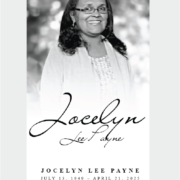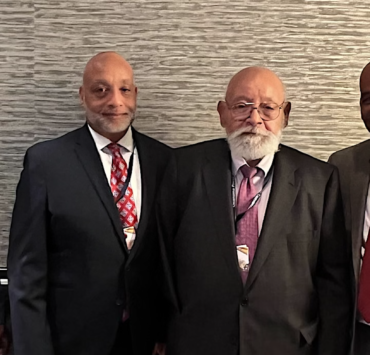By GARY LEE
A program to fund college scholarships to descendants of the Tulsa Race massacre and other students has received an additional $1.5 million in funding.
State Representative Regina Goodwin pushed through the funding boost as this year’s legislative session wound to a close. The enhanced funding is for a little-known and underused program established to give up to full-tuition scholarships to college-bound students in North Tulsa and elsewhere in the city.
“The upshot is that it will be easier for students from our community to get a good college education,” Goodwin said in an interview with the Oklahoma Eagle.
Goodwin’s objective in obtaining additional funding was to follow up on the mission of former legislators from North Tulsa to see that the state redresses damages caused by the 1921 Tulsa Race Massacre. After the official 2001 report on the massacre, then State Representative Don Ross and Maxine Horner helped shepherd a statute through the legislature to respond to the destruction caused by the Massacre. The Tulsa Reconciliation Education Scholarship program was one of the measures that the legislature passed. It stipulated that students from Tulsa could get grants for colleges in Oklahoma if they met specific criteria.
Program Not Fulfilling Its Mission
In reviewing the program’s history, Goodwin discovered that it was not being used to fulfill its original purpose. For example, when then Rep. Ross designed the scholarship, he envisioned that as many as 300 Tulsa students a year could get full scholarships under the program, prioritizing descendants of the race massacre. But Goodwin found that only 172 scholarships had been granted under the program in the past 20 years. And the majority of recipients have received grants of only $1,000.
Goodwin also found that the Oklahoma Regents, which administers the program, were not enhancing the endowment for it. Over the past four years, the Oklahoma Regents have not contributed any additional funds to the Trust Fund established for the scholarship.
Goodwin discovered further that the program was not giving priority to descendants of the victims of the race massacre.
Over the past few months, Goodwin wrote revisions to the statute for the program, highlighted by a provision that it would give preference to race massacre descendants. She tried to lobby the state legislature to pass it. While the bill passed committee review, it did not pass the legislature
But last week, Goodwin succeeded in getting the additional leaders of the Oklahoma legislature to approve an additional $1.5 million for the program. She is also working with the Oklahoma Regents, who administer the program to enhance publicity and improve the process for awarding the scholarships.
“We want to press the issue that students who are descended from race massacre victims should be considered first,” Goodwin said.
“Our young people are our future,” Goodwin added. “We want to see them get the best education possible. This increased funding should go a long way in fulfilling that goal.











